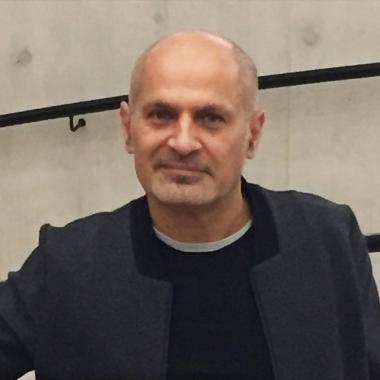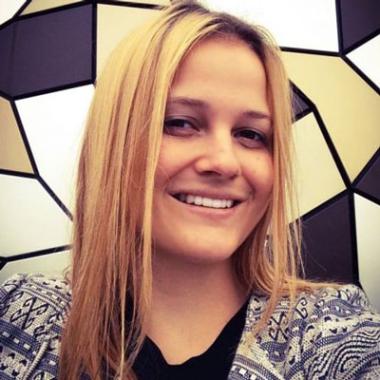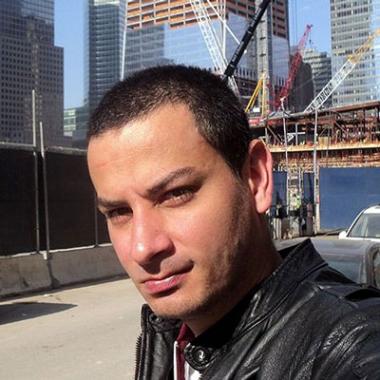Course Overview
Course summary
The Architecture MA offers a unique opportunity for graduates interested in the intersection of architectural design, theory and research, encouraging students to develop their own positions and identities as creative practitioners and thinkers. A range of thematic and contextual concerns are offered and explored through the course using unconventional and imaginative methods of design, research and representation. These include cultural identity, architecture and society, political architecture, contested landscapes and digital design. These diverse fields of inquiry and their impact on our cities are underpinned by integrating ‘other’ voices such as post-colonialism, critical theory, feminist theory and race studies. The course promotes methodological and representational innovation, with participants using techniques such as social mapping, interactive installations, film and conceptual modelling to stimulate projects towards high-levels of spatial, material and formal resolution.
A distinct and unique feature of the Architecture MA is its use of specialist pathways, namely Cultural Identity and Globalisation, Digital Media, and History and Theory. Students can elect to choose one of these routes through the programme, all of which incorporate option modules – graduating with the related named specialisation award, or else select their own combination of modules in order to graduate with the title Architecture MA. No matter how participants navigate their way through the course, it will inevitably be a dynamic journey of self-reflection and positioning to affirm interests and future practice concerns.
The course is delivered within a generous studio culture characterised by inclusion, creative experimentation and intellectual rigour. Participants work individually and in groups, and are directed by experienced and committed tutors who are experts in their respective fields. The course is further supported and enriched by a network of renowned visiting speakers and critics from practice and academia, as well as high-quality studio spaces and state-of-the-art fabrication facilities.
The Architecture MA is part of a suite of Master's courses offered by the School of Architecture and Cities at the University of Westminster, sharing dynamic design studio spaces. The school provides first-class shared facilities such as state-of-the-art digital design/fabrication equipment and a team of lecturers and researchers deeply immersed in the very latest developments in architectural design, theory, historical research, and technology.
The Architecture MA is intended to appeal to students and practitioners with an existing architectural degree qualification like BA, BSc, BArch, Dip Arch, March, or in related cognate design disciplines who wish to continue an advanced level of research with a strong design and theoretical output.
Graduates from the Architecture MA have had a high level of success in securing employment with architectural practices in the UK and overseas or have gone on to launch their own architecture/design practices. Many continue on to further study (including PhD level) or to teach in schools of architecture. Whatever their destination after completing their studies, our graduates emerge with a strong sense of purpose and with a body of work that enhances their ability to access those parts of practice they are most interested in.
The Architecture MA course offers the following two awards each year:
- Jila Golzari Award – for a student with outstanding academic achievement
- Weston Williamson & Partners (WW+P) – for a project with innovative ideas, design or theory, for inclusive cities
If you would like to interrogate contemporary issues in architecture through innovative research and design with a fresh and sensitive approach, then this course is made for you.
Top reasons to study with us
- Outstanding facilities – We provide first-class facilities such as vibrant studio spaces and state-of-the-art fabrication equipment in the heart of central London
- Learn from experts – You’ll be taught by experienced and committed tutors who are experts in their respective fields, and hear from renowned visiting speakers and critics from practice and academia
- Career success – Graduates from this course have had a high level of success in securing employment with architectural practices in the UK and overseas or have gone on to launch their own architecture/design practices
- Choose your specialism – You'll develop highly creative and analytical skills to become an expert in your subject of interest, through one of the course's three pathways or by creating your individual one, in order to build a successful career as a practitioner or academic
Course climate action statement
The Architecture MA is committed to tackling climate in its widest sense, addressing both environmental and social ecologies. We aim, across the different pathways of the course, at critical positions and interventions relative to context and cultural practice. We use innovative research and design to understand a variety of environmental practices across different cultures, which in turn forms part of our climate consciousness.
Course structure
Full-time postgraduate students study 180 UK credits in one full year. Part-time students will normally complete 180 UK credits over two years. To be awarded the Architecture MA, you must take the two core modules and four option modules.
Students can elect to choose one of these routes through the course – all of which incorporate option modules – graduating with the related named specialisation award, or else select their own combination of modules in order to graduate with the title MA Architecture:
- Cultural Identity and Globalisation Pathway: using design and live projects, the pathway interrogates the role of architecture in responding to globalization, socio-economic condition and cultural identity. It unpacks themes such as race, gender, ethnicity, conflict, etc through creative design with a high level of spatial, material, and formal resolution
- Digital Media Pathway: it provides the opportunity for students conversant with digital design tools and architectural theory to further develop these skill, form a critical understanding of their application; and to explore the value and appropriateness of new technologies in design praxis
- History and Theory Pathway: it offers a platform for critical examination of architecture theory within the current socio-political context. The pathway promotes unpacking of the historical development of architectural theory and practice concentrating on more contemporary discourses in architecture and space beyond individual iconic forms
The following modules are indicative of what you will study on this course.
Please note that option module availability can be limited due to factors like timetabling and space constraints, so your first choice is not always guaranteed.
Core modules
This module prepares the students of the Architecture MA and associated pathways for the subsequent Major Thesis Project. It introduces the students to conventional and un-conventional methods of theory and design-led research. It aims to establish set principles and approaches to architectural theory and design practices to position students’ personal interest in a theme or a location within contemporary theoretical discourse. It will encourage exploring the student’s chosen Thesis theme or context interest within the wider socio-cultural context beyond the discipline of architecture, and where relevant, to include practices drawn from related disciplines.
The course and the methods of study for the module will as a consequence depend on the type/format of research theme or context that each student is interested in for their thesis project with outcomes that will include specific agenda and concept leading to Thesis strategy which will form the basis of their Major Thesis project.
40 credits
The module specifically deals with the research, development, exploration, synthesis and conclusion of a student’s chosen area of study for their Major Thesis Project.
60 credits
Option modules
A studio design project that examines the nature and meaning of cultural identity, issues of globalisation etc in spatial and architectural terms; developing visual 'languages' and programmatic strategies that result in a design project of considerable conceptual, formal, spatial, material and technological resolution. You will work individually on your project, which will be based on a different topic of investigation each year, responding to current concerns about architecture within a specific urban and cultural context, as well as its broader global context. In each instance students will be required to investigate a particular cultural or urban issue relating to the notion of cultural identity and representation.
20 credits
Building on the conceptual emphasis of Semester One’s ‘Theories of Identity’ module, this module will develop a deep methodological understanding of the phrase ‘culturally sensitive and critical designer’. This will begin through introductory lectures on the historical evolution, key theoretical frameworks, and methods of ethnography. Participants will then develop their own ethnographic methodology to access, engage, and understand a particular ‘site’. An emphasis will be placed on creative and experimental approaches to methods such as participant observation, architectural and spatial analysis, interviewing, documentary, social media, and archival research. In addition to normative fieldwork methods, imaginative use of film, mapping, photography, performative, and narrative strategies will be encouraged. A key objective will be to understand the relationship between subjects’ site-specific cultural practice, spatial relations, architecture, and wider transcultural / diasporic and global networks and influences. Participants will also be encouraged to engage with broader issues of truth, objectivity, knowledge, bias, etc., which arise within a ‘creative research relationship’.
20 credits
The aim of this module is to provide you with direct experience and appreciation of architecture in London and the tools for documenting, analysing and understanding London as a global city through its present and past. You will explore a varied range of textual and visual research methods to develop new ways of imagining the city environment.
London will be your research laboratory: the module will be conducted through urban walks with intensive documentation through sketching, photography, audio and video recordings. A series of group tutorials will allow you to develop and present your analysis through the findings of the site visits as well as other relevant sources eg publications, maps, paintings, films, online videos, exhibitions etc. The module looks at how architecture is situated within a wider environment and introduces you to different methodological approaches to the investigation of the buildings and open spaces of the city. This will involve the careful study of the history (and hidden histories) of places; a critical consideration of the role of imagery in mediating our perceptions of the city; and the development of an individual representation toolkit for ‘picturing cities’ that can then be used in your subsequent research and/or practice.
20 credits
A project module which introduces photographic, filmic and motion studies as ways of looking at the differences between static images, movies and contemporary video culture.
20 credits
The aim of the module is to introduce you to the notion of ‘culturally sensitive and critical designer’ within critical theory and design. This will be done through a series of lectures/seminars and design workshops to serve as a broad introduction to key concepts in design (both classic and contemporary) within the disciplines of both architecture and cultural studies that relate to issues of cultural identity and globalisation. A significance component of the module will include a proposition/design to the theme of space and identity. The ultimate objective of the module is to inspire and stimulate participants to explore broad themes within the subject area and, through an elective element, begin to identify their own themes of interest to explore beyond the module.
20 credits
This module will introduce you to major theoretical issues that are facing contemporary architectural practice across the world. The intention is for students to identify subjects and themes that they will develop in subsequent modules and through the Major Thesis Project. The module is taught by a series of lectures, seminars and oral presentation sessions by students.
20 credits
This module aims to provide you with an introduction into media arts with focus on adaption of new and old technologies, specifically in the field of interactive installation, information visualisation, network culture, critical software, tactical media, are all considered in relation to architecture.
20 credits
Course Overview Video
Learn more about this course from a member of the course team.
Architecture Tour and Facilities
Watch the video below to find out more about our facilities at the University's Marylebone Campus.
For more details on course structure, modules, teaching and assessment Download the programme specification (PDF).
To request an accessible version please email [email protected]
Get your copy of the University of Westminster prospectus and browse the range of courses on offer.
Contact us for general course enquiries:
+44 (0)20 7911 5000 EXT 65511
(Mon–Fri, 10am–4pm GMT)
Live chat with us
(Mon–Fri, 10am–4pm GMT)
Open evenings
Join us at an open evening online or on campus. Get a feel for student life at the University of Westminster and talk to course leaders and our support teams.
Can't attend? See more open events
Careers
The Architecture MA aims to further the education of design graduates who will find employment in architectural practice or related disciplines. Our graduates have worked in architectural practices in the UK and overseas, with some having set up their own practice and others picking up academic teaching posts.
The specialist pathway options offered are intended to provide students with further employability skills related to traditional architectural design, urban design and multidisciplinary practices. Our graduates have been the lead architectural experts on multidisciplinary teams, NGO’s municipalities or government organisations in regeneration and reconstruction work as specialists in the field of urban design, urban renewal strategies and historical conservation, or experts in digital media, web/media, graphics, creative design practice including exhibition design/curatorship.
The Architecture MA may also form a platform for continuing study with a career in academia or a specialist research subject. The course can prepare suitable applicants for the opportunity to study for MArch (RIBA Part 2) or a Doctorate/PhD degree Research by Design/Research by Practice.
Career success
Graduates from this course have had a high level of success in securing employment with architectural practices in the UK and overseas or have gone on to launch their own architecture/design practices
Choose your specialism
You can choose one of the course's three pathways or create your individual one, by selecting and combining relevant modules that meet your individual requirements.
Employers
Access a network of over 3,000 employers at the University’s new home of careers and enterprise, Zone29.
Industry links
You’ll hear from renowned visiting speakers and critics from practice and academia during the course.
We have links with architecture practices, design practices, large network academic collaborators, and NGOs in the UK and overseas.
Weston Williamson & Partners (WW+P) is the sponsor of an annual award that we offer for a project with innovative ideas, or design or theory, for inclusive cities.
Job roles
This course will prepare you for roles such as:
- Architectural partner
- Architecture and regeneration consultant
- Executive designer
- Lead architecture assistant
- Lead digital media consultant
- Researcher
- Senior academic
- Senior architecture assistant
- Senior architecture technologist
- Senior partner
- Spatial/urban designer
Graduate employers
Graduates from this course have found employment at organisations including:
- BDP Architects, London, UK
- Foster + Partners, London, UK
- Goldsmiths, University of London, UK
- Grimshaw Architects, London, UK
- JRL Group, London, UK
- HWCD Architects, China
- NG Architects, London, UK
- Riccardo Tossani Architecture, Japan
- Rio Architects, Cardiff, Wales
- Royal College of Art, London, UK
- Savills, Egypt
- Shubham Lohe Architects, India
- Smart Cities World, London, UK
- University of Westminster, London, UK
Weston Williamson + Partners, London, UK
Accelerate your career at Zone29
Zone29 is our new home of careers and enterprise.
Our doors are set to open in spring 2026, but game-changing opportunities are available now, such as:
• jobs and placements
• tailored career advice and industry mentoring
• careers events led by industry experts
• help with developing your own business or freelance career
• enhancing your career planning through the Westminster Award

Our graduates

Imane Keaik
Architecture MA - 2020
One of the most interesting parts of this course is the conceptual and theoretical side that is at the essence of the lectures, modules and workshops. This drives your perspective and way of thinking about architecture and cultural identity. The theoretical framework will eventually feed the evolution of the project to produce an outstanding project for architecture portfolios. The Fabrication Lab, printing shop and workshop areas are vital places for students to spend time and for me they were the most exciting places to go.

Jiajun Zhao
Architecture MA - 2021
This course has expanded my thinking with a deeper understanding of research. Coming from China, I think that the architectural education there is less flexible and lacks creativity. The course has given me a broader understanding of architecture and enabled me to re-evaluate the definition of architecture. I hope that more students who have received Oriental architecture education will experience this wonderful learning journey to further stimulate their creativity.

Merve Karatas
Architecture MA - 2020
One of the many characteristics of this MA is how it develops your conceptual thinking as well as your cultural awareness of impact of architecture in our cities. There is also the encouragement to use different forms of experimentation, from creative drawings to conceptual model making. The Fabrication Lab at the University is very rich and well equipped. When I compare Westminster to my previous university, I would never have imagined the opportunities that existed here.
Course Leader

Dr Nasser Golzari
Senior Lecturer
Dr Nasser Golzari is an award-winning architect, academic and researcher. He is the Course Leader for the Architecture MA and also part of the March RIBA Part II and PhD supervisory team at the University of Westminster.
Driven by his research interests in social architecture, his projects and research have been awarded the RIBA President's Medals High Commendation Award 2016, the Grand Design NaCSBA - Shortlist 2016, and the Constructing Communities Award. His collaborative projects were awarded the Holcim Commendation Award for Sustainable Construction, The Aga Khan Award for Architecture, and also nominated for the Civic Trust Award 2000, 1997 and 1996. His latest collaborative project with Riwaq work has been the co-curation of the Secrets of the Digital Garden exhibited in the Chicago Architecture Biennial 2019, and Berlinale 2020.
A distinct and unique feature of this course is the exploration of our students’ innovative and critical skills through the three specialist pathways, namely Cultural Identity and Globalisation, Digital Media, and History and Theory.
Course Team
Why study this course?
Outstanding facilities
We have vibrant studio spaces and a cutting-edge Fabrication Laboratory.
Learn from experts
You’ll be taught by experienced and committed tutors who are experts in their respective fields, and hear from renowned visiting speakers and critics from practice and academia.
Award-winning students
Our student success has been recognised by a wide range of external awards, including RIBA President's Medals.
Entry Requirements
A minimum of a lower second class honours degree (2:2) in architecture or a related art, design or built environment discipline.
If your first language is not English you should have an IELTS 6.5 with no element below 6.0.
You must provide a sample of your work in the form of a digital portfolio demonstrating creative ability from your academic and professional experience (an average of 10 pages). You may submit a link to your portfolio, an online gallery (e.g. dropbox or similar) or a website as part of your application.
Written statement guidance
Within your application you will be asked for a written statement. You are encouraged to provide an individual response reflecting your own particular skills and interests. Rather than a generic statement, we would like to understand why you are applying to join the MA Architecture. For example, which aspects of its content interest you? What are you hoping to experience on the course and how will it serve your longer-term ambitions? The more you can tell us about yourself, your creative and intellectual interests, and your aspirations, the better.
Portfolio guidance
The admissions process includes the submission of a design portfolio in electronic format to include a range of projects demonstrating:
- spatial or design awareness using a wide range of creative and analytical skills. Engage with, and respond to, people, context and place
- research and critical thinking skills
- the use of a wide range of media that may include digital and/or hand drawing, sketching, model making, photography and film. Avoid excessive generic renders and consider a variety of content that include the process of critical thinking and design
- (optional) a sample of academic writing (an extract from an essay or dissertation previously written).
Recognition of prior learning and experience
If you have previously studied at university level, or have equivalent work experience, academic credit may be awarded towards your course at Westminster. For more information, visit our Recognition of Prior Learning page.
Application process
Visit our How to apply page for more information on:
- the application process
- what you need to apply
- deadlines for applications
A minimum of a lower second class honours degree (2:2) in architecture or a related art, design or built environment discipline.
If your first language is not English you should have an IELTS 6.5 with no element below 6.0.
You must provide a sample of your work in the form of a digital portfolio demonstrating creative ability from your academic and professional experience (an average of 10 pages). You may submit a link to your portfolio, an online gallery (e.g. dropbox or similar) or a website as part of your application.
Written statement guidance
Within your application you will be asked for a written statement. You are encouraged to provide an individual response reflecting your own particular skills and interests. Rather than a generic statement, we would like to understand why you are applying to join the MA Architecture. For example, which aspects of its content interest you? What are you hoping to experience on the course and how will it serve your longer-term ambitions? The more you can tell us about yourself, your creative and intellectual interests, and your aspirations, the better.
Portfolio guidance
The admissions process includes the submission of a design portfolio in electronic format to include a range of projects demonstrating:
- spatial or design awareness using a wide range of creative and analytical skills. Engage with, and respond to, people, context and place
- research and critical thinking skills
- the use of a wide range of media that may include digital and/or hand drawing, sketching, model making, photography and film. Avoid excessive generic renders and consider a variety of content that include the process of critical thinking and design
- (optional) a sample of academic writing (an extract from an essay or dissertation previously written).
Application process
Visit our How to apply page for more information on:
- the application process
- what to include with your application
- deadlines for application and enrolment
More information
- Country-specific entry requirements
- English language requirements
- Visas and advice
- Fees and scholarship information
University preparation courses
Our partner college, Kaplan International College London, offers Pre-Master’s courses that may help you gain a place on a postgraduate degree at Westminster.
To find out more, visit University preparation courses.
A minimum of a lower second class honours degree (2:2) in architecture or a related art, design or built environment discipline.
If your first language is not English you should have an IELTS 6.5 with no element below 6.0.
You must provide a sample of your work in the form of a digital portfolio demonstrating creative ability from your academic and professional experience (an average of 10 pages). You may submit a link to your portfolio, an online gallery (e.g. dropbox or similar) or a website as part of your application.
Written statement guidance
Within your application you will be asked for a written statement. You are encouraged to provide an individual response reflecting your own particular skills and interests. Rather than a generic statement, we would like to understand why you are applying to join the MA Architecture. For example, which aspects of its content interest you? What are you hoping to experience on the course and how will it serve your longer-term ambitions? The more you can tell us about yourself, your creative and intellectual interests, and your aspirations, the better.
Portfolio guidance
The admissions process includes the submission of a design portfolio in electronic format to include a range of projects demonstrating:
- spatial or design awareness using a wide range of creative and analytical skills. Engage with, and respond to, people, context and place
- research and critical thinking skills
- the use of a wide range of media that may include digital and/or hand drawing, sketching, model making, photography and film. Avoid excessive generic renders and consider a variety of content that include the process of critical thinking and design
- (optional) a sample of academic writing (an extract from an essay or dissertation previously written).
Recognition of prior learning and experience
If you have previously studied at university level, or have equivalent work experience, academic credit may be awarded towards your course at Westminster. For more information, visit our Recognition of Prior Learning page.
Application process
Visit our How to apply page for more information on:
- the application process
- what you need to apply
- deadlines for applications
A minimum of a lower second class honours degree (2:2) in architecture or a related art, design or built environment discipline.
If your first language is not English you should have an IELTS 6.5 with no element below 6.0.
You must provide a sample of your work in the form of a digital portfolio demonstrating creative ability from your academic and professional experience (an average of 10 pages). You may submit a link to your portfolio, an online gallery (e.g. dropbox or similar) or a website as part of your application.
Written statement guidance
Within your application you will be asked for a written statement. You are encouraged to provide an individual response reflecting your own particular skills and interests. Rather than a generic statement, we would like to understand why you are applying to join the MA Architecture. For example, which aspects of its content interest you? What are you hoping to experience on the course and how will it serve your longer-term ambitions? The more you can tell us about yourself, your creative and intellectual interests, and your aspirations, the better.
Portfolio guidance
The admissions process includes the submission of a design portfolio in electronic format to include a range of projects demonstrating:
- spatial or design awareness using a wide range of creative and analytical skills. Engage with, and respond to, people, context and place
- research and critical thinking skills
- the use of a wide range of media that may include digital and/or hand drawing, sketching, model making, photography and film. Avoid excessive generic renders and consider a variety of content that include the process of critical thinking and design
- (optional) a sample of academic writing (an extract from an essay or dissertation previously written).
Application process
Visit our How to apply page for more information on:
- the application process
- what to include with your application
- deadlines for application and enrolment
More information
- Country-specific entry requirements
- English language requirements
- Visas and advice
- Fees and scholarship information
University preparation courses
Our partner college, Kaplan International College London, offers Pre-Master’s courses that may help you gain a place on a postgraduate degree at Westminster.
To find out more, visit University preparation courses.
Meet one of our students
Architecture MA student, Rana Soliman, talks about why she joined this course.
What our students say

Shubham Lohe
Architecture MA - 2020
I made the right decision to take my masters in London, particularly at Westminster as we had the opportunity to structure the course how we wanted, to get the best out of our development. I come from India where architectural education is more practical and structural. This course is more conceptual and abstract based which has enabled me to stand out as I encourage the knowledge of both aspects of design. I would encourage you to experience this fantastic learning journey with the support of wonderful professors.

Anna Ekonomova
Architecture MA - 2015
The best parts about Westminster are the quality of teaching and the new opportunities in terms of technical support (metal/wooden workshop spaces, laser cutting and 3D printers). All these help to make a new world of creative opportunities.

Sebastian Mongillo
Architecture MA - 2013
The Architecture MA at Westminster helped me to open my mind and improve my skills as an architect. The course encourages you to take a different approach to research and design. It offers a well-designed study plan, great staff and facilities full of resources, all in a very friendly multicultural environment.
MORE Degree Show
MORE is an annual exhibition of our postgraduate students' thesis projects. It showcases students’ talent, creativity, and strategic work. Explore the latest collection in the MORE 2025 catalogue and on MORE 2025 website.

Seyyed Sepehr Esfahani, Architecture MA (2025) – Narrative Landscapes of a Diverse City: London’s ballads as a series of architectural follies
Student work
View examples produced by our Architecture MA students.
Our students have won an extraordinary number of international awards, including RIBA Presidents Medals, confirming our reputation as one of the world's leading centres for architectural education.
Follow us on Instagram
Learn new skills
Volunteer and gain new skills
Learn new skills, create connections and make a difference in the community through our volunteering opportunities.
Gain entrepreneurial expertise
Access industry networking events, workshops, one-to-one business advice and start-up support through our award-winning WeNetwork.
Get extra qualifications
Free access to online courses in Adobe and Microsoft Office, and specialist training on LinkedIn Learning.
Fees and Funding
UK tuition fee: £1,100 (Price per 20-credit module)
When you have enrolled with us, your annual tuition fees will remain the same throughout your studies with us. We do not increase your tuition fees each year.
Find out how we set our tuition fees.
Paying your fees
If you don't wish to pay the whole amount of your fees at once, you may be able to pay by instalments. This opportunity is available if you have a personal tuition fee liability of £2,000 or more and if you are self-funded or funded by the Student Loans Company.
Find out more about paying your fees.
Alumni discount
This course is eligible for an alumni discount. Find out if you are eligible and how to apply by visiting our Alumni discounts page.
Funding
There is a range of funding available that may help you fund your studies, including Student Finance England (SFE).
Find out more about postgraduate student funding options.
Scholarships
The University is dedicated to supporting ambitious and outstanding students and we offer a variety of scholarships to eligible postgraduate students.
Find out if you qualify for one of our scholarships.
Additional costs
See what you may need to pay for separately and what your tuition fees cover.
International tuition fee: £1,778 (Price per 20-credit module)
When you have enrolled with us, your annual tuition fees will remain the same throughout your studies with us. We do not increase your tuition fees each year.
Find out how we set our tuition fees.
Paying your fees
If you don't wish to pay the whole amount of your fees at once, you may be able to pay by instalments. This opportunity is available if you have a personal tuition fee liability of £2,000 or more and if you are self-funded or funded by the Student Loans Company.
Find out more about paying your fees.
Alumni discount
This course is eligible for an alumni discount. Find out if you are eligible and how to apply by visiting our Alumni discounts page.
Funding
There are a number of funding schemes available to help you fund your studies with us.
Find out more about funding for international students.
Scholarships
The University is dedicated to supporting ambitious and outstanding students and we offer a variety of scholarships to eligible postgraduate students.
Find out if you qualify for one of our scholarships.
Additional costs
See what you may need to pay for separately and what your tuition fees cover.
UK tuition fee: £1,100 (Price per 20-credit module)
When you have enrolled with us, your annual tuition fees will remain the same throughout your studies with us. We do not increase your tuition fees each year.
Find out how we set our tuition fees.
Paying your fees
If you don't wish to pay the whole amount of your fees at once, you may be able to pay by instalments. This opportunity is available if you have a personal tuition fee liability of £2,000 or more and if you are self-funded or funded by the Student Loans Company.
Find out more about paying your fees.
Alumni discount
This course is eligible for an alumni discount. Find out if you are eligible and how to apply by visiting our Alumni discounts page.
Funding
There is a range of funding available that may help you fund your studies, including Student Finance England (SFE).
Find out more about postgraduate student funding options.
Scholarships
The University is dedicated to supporting ambitious and outstanding students and we offer a variety of scholarships to eligible postgraduate students.
Find out if you qualify for one of our scholarships.
Additional costs
See what you may need to pay for separately and what your tuition fees cover.
International tuition fee: £1,778 (Price per 20-credit module)
When you have enrolled with us, your annual tuition fees will remain the same throughout your studies with us. We do not increase your tuition fees each year.
Find out how we set our tuition fees.
Paying your fees
If you don't wish to pay the whole amount of your fees at once, you may be able to pay by instalments. This opportunity is available if you have a personal tuition fee liability of £2,000 or more and if you are self-funded or funded by the Student Loans Company.
Find out more about paying your fees.
Alumni discount
This course is eligible for an alumni discount. Find out if you are eligible and how to apply by visiting our Alumni discounts page.
Funding
There are a number of funding schemes available to help you fund your studies with us.
Find out more about funding for international students.
Scholarships
The University is dedicated to supporting ambitious and outstanding students and we offer a variety of scholarships to eligible postgraduate students.
Find out if you qualify for one of our scholarships.
Additional costs
See what you may need to pay for separately and what your tuition fees cover.
Facilities
Find out more about facilities at the School of Architecture and Cities.
Teaching and Assessment
Below you will find how learning time and assessment types are distributed on this course. The graphs below give an indication of what you can expect through approximate percentages, taken either from the experience of previous cohorts, or based on the standard module diet where historic course data is unavailable. Changes to the division of learning time and assessment may be made in response to feedback and in accordance with our terms and conditions.
How you’ll be taught
Teaching methods across all our postgraduate courses focus on active student learning through lectures, seminars, workshops, problem-based and blended learning, and where appropriate practical application. Learning typically falls into two broad categories:
- Scheduled hours: examples include lectures, seminars, practical classes, workshops, supervised time in a studio
- Independent study: non-scheduled time in which students are expected to study independently. This may include preparation for scheduled sessions, dissertation/final project research, follow-up work, wider reading or practice, completion of assessment tasks, or revision
How you’ll be assessed
Our postgraduate courses include a variety of assessments, which typically fall into two broad categories:
- Practical: examples include presentations, podcasts, blogs
- Coursework: examples include essays, in-class tests, portfolios, dissertation
Data from the academic year 2024/25
Supporting you
Our Student Hub is where you’ll find out about the services and support we offer, helping you get the best out of your time with us.
- Study support – workshops, 1-2-1 support and online resources to help improve your academic and research skills
- Personal tutors – support you in fulfilling your academic and personal potential
- Student advice team – provide specialist advice on a range of issues including funding, benefits and visas
- Extra-curricular activities – volunteering opportunities, sports and fitness activities, student events and more
Course Location
In the heart of London, our Marylebone Campus is home to the Westminster Business School and our Architecture, Planning and Tourism courses. Specialist workshops, dedicated digital and architecture studios, and our extensive Marylebone Library offer students everything they need for academic success.
Marylebone Campus is opposite Baker Street tube station and within easy walking distance of Regent's Park and Marylebone High Street.
For more details, visit our Marylebone Campus page.
This course is based at Marylebone, though some teaching may take place at our other central London campuses.
CHANGES TO OUR COURSES
All content on our course pages is accurate at time of publication.
Where significant or material changes have been made, applicants will be informed of these in line with Competition and Markets Authority guidance.
Contact us
Call our dedicated team on:
+44 (0)20 7911 5000 ext 65511
Opening hours (GMT): 10am–4pm Monday to Friday
Opening hours (GMT): 10am–4pm Monday to Friday
More information
Your Westminster
Book an open day. Order a prospectus. Sign up for newsletters.















